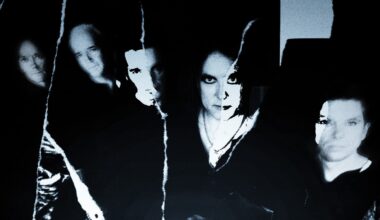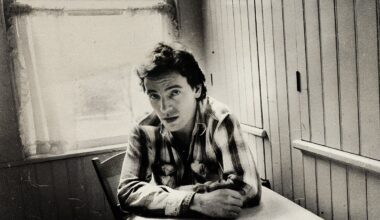Session guitarist Tim Pierce has revealed why he wasn’t chosen to join Bon Jovi’s band despite playing on their breakthrough hit “Runaway.” He shared his perspective in an interview with Guitar World.
Pierce explained how his involvement with Bon Jovi began. He also explained why he believes his appearance prevented him from joining the band permanently.
“That (‘Runaway’) happened kind of by accident, as many great opportunities do,” Pierce said. “I was 23 and recording in New York. Jon Bon Jovi was living upstairs at the Power Station [recording studio]. Basically, his job was the janitor for his uncle, Tony Bongiovi.”
The guitarist described how the collaboration developed and his contribution to the song.
“They put together a master demo and he asked me to play on it,” he continued. “I said, ‘Of course!’ I ended up doing all the guitars on ‘Runaway,’ and Jon credited me on the back of the record. That was his first Top 40 hit, and I got full credit. It was great.”
Pierce then addressed the reason he believes he wasn’t asked to join the band when Bon Jovi was forming their lineup.
“Jon and I became friends,” he said. “He came to LA when he was looking for musicians to join his band, but a couple of things happened. First, I didn’t have the image to be in the band. People forget that you couldn’t be in a rock band unless you looked a certain way. I didn’t have that image, so Jon never came out and asked.”
The guitarist acknowledged that Ritchie Sambora was ultimately the right choice for the band.
“Richie was the perfect choice,” Pierce concluded. “The way he plays, looks and sings is great. They wrote some of the most amazing songs ever. Jon didn’t ask, and it probably had to do with the fact that I had another gig – and didn’t look like a rock star.”
Pierce’s contribution to “Runaway” became more significant than initially anticipated. The song served as the foundation for Bon Jovi’s entire career trajectory.
Guitar Player reported that Pierce’s guitar parts on “Runaway” were largely improvised during the recording session. He used a Les Paul through Marshall amplifiers and a Schecter Stratocaster. The session guitarist created the memorable dive bomb effect on one of the rhythm parts. This became an integral element of the song’s distinctive sound.
The impact of Pierce’s work extended beyond the initial recording session. American Songwriter noted that Bon Jovi’s team later attempted to re-record “Runaway” after securing their record deal. The original version featuring Pierce’s guitar work was ultimately the one that was officially released and gained lasting recognition.
The song’s enduring popularity has kept Pierce’s contribution alive in rock history. MusicRadar confirmed that “Runaway” remains a staple in Bon Jovi’s live performances even decades after its release. This means Pierce’s guitar work continues to be heard by audiences worldwide at every Bon Jovi concert.
Pierce’s experience with “Runaway” highlights the often unpredictable nature of the music industry. A chance collaboration can create lasting musical legacy even when it doesn’t lead to permanent band membership. His story demonstrates how session musicians can play crucial roles in shaping iconic songs that define entire careers.






